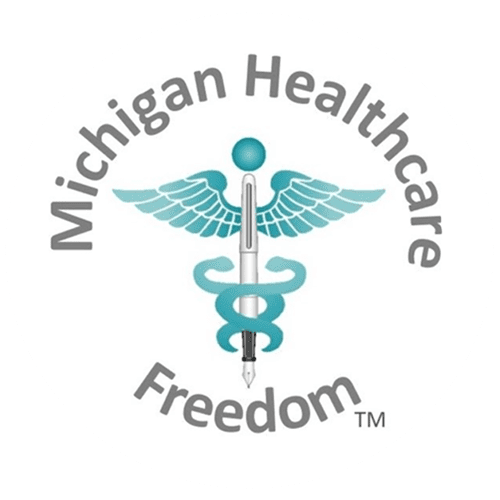
Rates of syphilis across America exploded 32% in 2021, over 2020, to the highest level since 1990. The preferred treatment, penicillin G benzathine, is consequently in very short supply. Pfizer Inc. has told the FDA that supply disruptions for the two most common dosages of penicillin G benzathine will likely continue into the second quarter of 2024:
https://www.supplychainbrain.com/articles/37773-syphilis-emergency-looms-in-the-us-as-drugs-run-low
Syphilis Emergency Looms in the U.S. as Drugs Run Low
July 26, 2023A shortage of penicillin to treat a skyrocketing number of syphilis cases is so dire that U.S. health officials are debating the need to declare a public health emergency, according to people familiar with the matter.
Major U.S. medical centers are rationing the recommended treatment for the deadly sexually transmitted disease because of a supply crunch. From Michigan to Missouri to Texas, some health-care providers are prioritizing giving a key treatment — penicillin G benzathine — to pregnant patients and babies, because the drug can pass through the placenta and also treat the fetus.
Syphilis has been sickening more people over the last few years, but the latest surge in cases has been especially worrying to the federal government. The Department of Health and Human Services is mobilizing a new federal task force to tackle the problem, and staff are discussing the possibility of declaring a public health emergency which could give officials access to more funding to address the crisis, according to people familiar with the matter.
“This is a remarkable shortage,” said Joseph Cherabie, an assistant professor at Washington University in St. Louis’s medical school, who treats syphilis patients. Because of the need to conserve the drug for pregnant patients, other people are getting less-than-ideal treatments for the infection.
The government’s efforts are being led by Assistant Secretary for Health Admiral Rachel Levine, according to one of the people, who asked not to be identified discussing private information. Levine has spent months recruiting experts to tackle the syphilis crisis, including officials at HHS, the Centers for Disease Control and Prevention and the Food and Drug Administration, which has been brought in to address ongoing drug shortages.
Levine and U.S. health officials at the CDC are weighing the benefits of the public health emergency declaration, such as the additional flexibility and money it would give HHS, one of the people said. They’re also considering the potential drawbacks. Some are wary a pandemic-fatigued public may consider it an overreaction and ignore similar declarations in the future. Ultimately, HHS Secretary Xavier Becerra has the power to make a declaration.
“The Department is closely monitoring the alarming rise in cases of syphilis and will continue working to address this public health threat,” an HHS spokesperson said.
Cascading ShortagesDrug shortages, though not uncommon, have hit 9-year highs in the U.S. Over the past year there have been shortages of antibiotics, chemotherapies and ADHD medicines, to name a few.
The situation is partly a result of under-investment in manufacturing after years of falling generic drug prices.Companies have also been caught off guard by unexpected changes in demand, creating far-reaching consequences that imperil lives.
The penicillin shortage began in April. The FDA said it was caused by increases in cases of both syphilis and strep throat. Because a common antibiotic used to treat strep was in short supply this winter, patients were prescribed penicillin as an alternative, driving up demand for the drug.
That created an acute problem at a time when syphilis cases were rising precipitously. Rates of syphilis in 2021 were the highest since 1990, according to the most updated government data. In 2021, at least 176,000 cases of syphilis were reported, 32% more than the year before. The infection disproportionately impacts gay and bisexual men.
Pfizer Inc. is the only company that makes penicillin G benzathine for the U.S., selling it under the brand name Bicillin L-A.
The company has told the FDA that supply disruptions for the two most common doses of penicillin G benzathine will likely continue into the second quarter of 2024. Pfizer has added night and weekend shifts to increase production. To free up manufacturing resources, it’s also deprioritized production of a smaller dose of Bicillin L-A that’s not widely used.
Harming Babies
Syphilis is especially dangerous for pregnant people, who can pass it on to a fetus, which often results in pregnancy loss, death of a baby shortly after birth or severe disability in children. Cases of this type of syphilis, called congenital syphilis, are also at their highest rates since the 1990s. In 2021, there were 2,855 cases reported, up 32% from the year prior. The disease is completely preventable with penicillin G benzathine.
Penicillin G benzathine is also often the most recommended treatment for people who aren’t pregnant. Yet with supplies running short, the CDC is advising that doctors turn to another antibiotic, doxycycline. That’s less convenient for patients, because doxycycline is a pill given twice a day for at least two weeks, whereas penicillin G benzathine is an injection that can sometimes clear the disease completely with one dose.
That makes doctors worry that some patients might not complete their treatment with doxycycline. Syphilis particularly affects people suffering from substance abuse, housing instability or homelessness, which makes it more difficult to sustain long-term medical care.
There’s also less evidence backing the drug than there is for penicillin, according to physicians.
“We’re learning in real time how effective doxycycline can be,” Cherabie said.
Some states or health systems are directing doctors to use doxycycline for syphilis. The Michigan Department of Health and Human Services has instructed state-funded clinics to use doxycycline for certain patients because of the shortage, spokesperson Chelsea Wuth said.At Houston Methodist, a health system with seven hospitals in the Houston area, penicillin G benzathine is reserved for pregnant patients and babies with syphilis, spokesperson Gale Smith said.
Some clinics have been able to get sufficient amounts of the Pfizer drug, at least for the time being. State-operated health clinics in South Carolina have been able to purchase as much as they need, a spokesperson for the health and environment department said.
Rise of STDs
While rates of HIV have been declining, other sexually transmitted diseases have become more prevalent in recent years. Condom use has fallen as more effective medications for HIV have become available, leaving people vulnerable to illnesses like syphilis, chlamydia and gonorrhea.
There are also fewer resources to identify people who need treatment and get them help. STD prevention work happens largely at local and state public-health departments, which have been losing money and staff over the years. The Covid-19 pandemic diverted already scarce public health resources away from STD work.
The rise in syphilis cases is prompting concern at a state level. Last year, New Mexico renewed a statewide public health order mandating that health-care providers screen pregnant women for syphilis multiple times to catch the disease. The state had only one case of congenital syphilis reported in 2017. It had 42 in 2020.
Syphilis cases in US newborns rise 10-fold over a decade
By Sriparna Roy - November 8, 2023The number of newborns with syphilis in the United States surged more than 10-fold in the last decade, the U.S. Centers for Disease Control and Prevention (CDC) reported on Tuesday.
The agency said 3,761 cases were recorded in 2022, the highest in over 30 years, up from 334 cases in 2012. The 2022 cases included 231 stillbirths and 51 infant deaths.
Nine out of 10 cases might have been prevented with timely testing and treatment during pregnancy, said Laura Bachmann, chief medical officer in CDC's Division of STD Prevention.
Syphilis is a sexually transmitted infection that can cause serious health problems without treatment, and during pregnancy, can lead to stillbirth, miscarriage, infant death, and maternal and infant morbidity.
By treating patients quickly, healthcare professionals could reduce some of the greatest hurdles to the care some mothers need, said Bachmann.
Congenital syphilis occurs when a mother with syphilis passes the infection to her baby during pregnancy.
The CDC recommends screening for syphilis at the first prenatal care visit to reduce perinatal transmission.
Benzathine penicillin G is the only recommended treatment for syphilis during pregnancy that must be administered as a single-dose injection or three doses spaced seven to nine days apart, depending on the stage of infection, according to the CDC.
Everything you never wanted to know about syphilis, but now need to.
If nothing else, Wiki wins on sheer number of citations, which I've clipped here.
Syphilis (/ˈsɪfəlɪs/) is a sexually transmitted infection caused by the bacterium Treponema pallidum subspecies pallidum. The signs and symptoms of syphilis vary depending in which of the four stages it presents (primary, secondary, latent, and tertiary). The primary stage classically presents with a single chancre (a firm, painless, non-itchy skin ulceration usually between 1 cm and 2 cm in diameter) though there may be multiple sores. In secondary syphilis, a diffuse rash occurs, which frequently involves the palms of the hands and soles of the feet. There may also be sores in the mouth or vagina. In latent syphilis, which can last for years, there are few or no symptoms. In tertiary syphilis, there are gummas (soft, non-cancerous growths), neurological problems, or heart symptoms. Syphilis has been known as "the great imitator" as it may cause symptoms similar to many other diseases.
<snip>
After decreasing dramatically with the availability of penicillin in the 1940s, rates of infection have increased since the turn of the millennium in many countries, often in combination with human immunodeficiency virus (HIV). This is believed to be partly due to increased sexual activity, increased prostitution, and decreased use of condoms.
It's an ancient disease, difficult because it varies so much in the way it shows up.
Historically, straight talk about syphilis wasn't politically correct. But wow, those Renaissance artists didn't let that stop them.
The first recorded outbreak of syphilis in Europe occurred in 1494/1495 in Naples, Italy, during a French invasion. Because it was spread by returning French troops, the disease was known as "French disease", and it was not until 1530 that the term "syphilis" was first applied by the Italian physician and poet Girolamo Fracastoro. The causative organism, Treponema pallidum, was first identified by Fritz Schaudinn and Erich Hoffmann in 1905 at the Charité Clinic in Berlin. The first effective treatment, Salvarsan, was developed in 1910 by Sahachiro Hata in the laboratory of Paul Ehrlich. It was followed by the introduction of penicillin in 1943.
Many well-known figures, including Scott Joplin, Franz Schubert, Friedrich Nietzsche, Al Capone, and Édouard Manet are believed to have contracted the disease.
Origin
The history of syphilis has been well studied, but the exact origin of the disease remains unknown. There are two primary hypotheses: one proposes that syphilis was carried to Europe from the Americas by the crew(s) of Christopher Columbus as a byproduct of the Columbian exchange, while the other proposes that syphilis previously existed in Europe but went unrecognized. There has been a recent skeletal discovery in the Yucatan Peninsula dating over 9,900 years ago of a 30 year old woman who had Treponema peritonitis, a disease related to syphilis. "There is also evidence for a possible trepanomal bacterial disease that caused severe alteration of the posterior parietal and occipital bones of the cranium." Syphilis was the first "new" disease to be discovered after the invention of printing....
https://www.upi.com/Health_News/2023/12/04/STD-syphilis-drug-shortage/1471701699841/
Health offices warn of shortage of syphilis drug as cases rise
As syphilis cases surge across America, a group representing the nation's STD specialists says members are reporting shortages of a drug essential to fighting the disease.
In a survey from the National Coalition of STD Directors conducted in early November, 46% of sexual health clinics said they'd tried to order Bicillin L-A -- only to find that it was unavailable.
Bicillin L-A, a form of penicillin, is crucial to the treatment of syphilis. That's especially true for congenital syphilis, which occurs when a newborn contracts the illness from an infected mother.
Early in November, the U.S. Centers for Disease Control and Prevention sounded the alarm on the disease, noting that rates of congenital syphilis soared 10-fold between 2012 and 2022.
In 2022, more than 3,700 babies across the United States were born with syphilis, the CDC said.
According to the March of Dimes, "If not treated right away, congenital syphilis can cause problems for your baby later in life," including deformities of the bones and teeth, paralysis or seizures, problems with vision and hearing and developmental delays.
Luckily, Bicillin L-A can quickly vanquish the syphilis bacterium. It's the only treatment approved for pregnant women with syphilis, and it's also the first-line therapy for syphilis patients generally.
Bicillin L-A is made by Pfizer Inc., which in June alerted the U.S. Food and Drug Administration of a shortage that the company predicts may last until mid-2024.
The new survey confirms that Bicillin L-A is in short supply nationwide.
The group sent its survey to 136 state and local health departments and 151 sexual health clinics in early November.
Among the findings:
- Respondents in 13 different states and one Indian Health Services agency said they'd received reports of at least one pregnant woman who'd been unable to receive Bicillin L-A
- Nearly half (46%) of clinics said they'd had difficulties getting Bicillin L-A, a increase from the 40% of clinics who hadn't been able to access the drug when a prior survey was conducted in August
- More than two-thirds (68%) of health department specialists believe shortages will cause syphilis cases to rise even higher in their jurisdictions
There is a second-line treatment, doxycycline, which patients can use if Bicillin L-A is not available. But treatment can take a month and severe side effects can occur.
In the new survey, 36% of clinics said they'd had a patient who could not complete their full course of doxycycline.
The CDC has already advised that, to preserve supply, doctors use Bicillin L-A only for cases of congenital syphilis and give doxycycline to all other patients.
Dr. Natasha Bagdasarian, Michigan’s Chief Medical Officer, has decried the rise of syphilis cases in Michigan. Somehow, the shortage of penicillin G benzathine is added only as an afterthought at the end of this MSU Spartan News Room Capital News Service piece:
https://news.jrn.msu.edu/2023/12/health-experts-worry-about-rising-syphilis-rates/
Health experts worry about rising syphilis rates
Kenzie Terpstra - December 8, 2023LANSING – State health officials are sounding the alarm about the rising prevalence of syphilis among men, women and infants.
Since 2012, syphilis rates in Michigan have increased an average of 11% annually. They rose 25% between 2020 and 2021, according to the Department of Health and Human Services.
“We’re facing a syphilis crisis, not only in Michigan, but across the country,” said Natasha Bagdasarian, the state’s chief medical executive.
While men accounted for 79% of all syphilis diagnoses in 2022, the rate of cases among women has tripled over the last five years, contributing to the rising rates overall.
“Syphilis has been something that was predominantly being seen in men who have sex with men,” Bagdasarian said. “Recently, the epidemiology of syphilis has changed – we’re starting to see more cases in the heterosexual community.”
For women, syphilis can lead to complications such as infertility, but it is especially concerning because of the risk posed to pregnant women, Bagdasarian said.
Congenital syphilis, a disease that occurs when a mother with syphilis passes the infection on to her baby during pregnancy, poses serious health complications for both.
“Miscarriages, preterm birth, serious birth defects and fetal death are serious risks involved with women of child-bearing age that have syphilis,” Bagdasarian said.
Last year, there were 154 pregnant women diagnosed with syphilis in the state. Among those cases, there were 37 confirmed cases of congenital syphilis, according to the department’s sexually transmitted infection, or STI, data.
Of the 37 with congenital syphilis, 69% had no or inadequate prenatal care, according to the state’s 2022 overview.
Bagdasarian said routine testing for all pregnant individuals is a key to decreasing infection rates.
“Syphilis is both preventable and treatable – we need to screen for and detect every single case so that we can make sure folks are treated early and appropriately,” Bagdasarian said.
The Centers for Disease Control and Prevention, or CDC, released a study of five Southwest Michigan cases of ocular syphilis that were diagnosed last year. The disease affects the eye and may lead to decreased vision or blindness.
The five women were all traced back to the same male sexual partner who did not develop ocular syphilis, according to the CDC study.
The CDC report stated that a common heterosexual partner among a cluster of women with ocular syphilis had not been previously documented and may indicate an increased risk that the disease will affect the entire body.
The Kalamazoo County Health and Community Services Department is encouraging STI testing after reporting around 2,600 STI cases in 2022.
“We continue to be concerned that STI testing remains low,” Kalamazoo County health educator Lindsay Merling said. “We understand that the topic of testing may be uncomfortable for some. However, the sooner STIs are diagnosed and treated, the better.”
Kalamazoo County has the second-highest rate of syphilis in the state, followed by Muskegon, Washtenaw and Genesee counties.
Detroit led the state in having the highest syphilis rate of 46.4 cases per 100,000 residents.
Syphilis, gonorrhea and chlamydia are the three main reportable STIs. Gonorrhea rates have decreased by 30% since 2020, and chlamydia is the most common STI in the state with over 42,000 cases last year.
The state’s data indicate a large disparity among men diagnosed with syphilis: Black men have the highest rates of any racial group – 10.2 times higher than among white men.
A nationwide shortage of the antibiotic bicillin, a form of penicillin that is the treatment of choice for pregnant women, contributes to the high rates, Bagdasarian said.
“We have to make sure, nationally, that we address drug shortages like this because we can’t afford to have shortages in those types of drugs,” Bagdasarian said.
FDA Approves Importation Of Extencilline, An Unapproved Syphilis Drug From France
https://www.upi.com/Health_News/2024/01/11/FDA-import-syphilis-drug-France/2021704981572/
FDA approves importation of syphilis drug from France
By Robin Foster - January 11, 2024In a letter from Laboratoires Delbert, the Paris-based company said it's working with the FDA to temporarily import 3.5 million units of Extencilline, which is not approved in the United States. Photo courtesy of FDA/Flickr
In a letter from Laboratoires Delbert, the Paris-based company said it's working with the FDA to temporarily import 3.5 million units of Extencilline, which is not approved in the United States. Photo courtesy of FDA/Flickr
Amid an ongoing shortage of the first-line treatment for syphilis in the United States, the U.S. Food and Drug Administration will allow the importation of a different syphilis drug from a French drugmaker.In a letter from Laboratoires Delbert, the Paris-based company said it's working with the FDA to temporarily import 3.5 million units of Extencilline, which is not approved in the United States. The move was approved by the FDA on Wednesday.
Bicillin, a long-acting injectable form of penicillin made by Pfizer that is similar to Extencilline, has been in short supply in the United States since the middle of 2023.
It is the recommended treatment for syphilis in adults and it's the only recommended treatment for pregnant women to prevent syphilis passing from mother to newborn.
"The delays in treatment that women have faced because of the shortage has placed them and their families at grave risk during the nation's syphilis crisis," executive director David Harvey said in a statement. "Today, the administration took meaningful action on our ongoing ask they do anything and everything in their power to address the Bicillin L-A shortage and to provide communities with the resources they need to treat patients and solve this public health crisis."
"We hope this is the first step toward seeing a resolution to this shortage, and that HHS [U.S. Department of Health and Human Services] and FDA will continue to take steps to ensure that communities never experience a syphilis treatment shortage again," Harvey added.
In October, the coalition joined dozens of other public health groups in urging the Biden administration to address the Bicillin shortage as syphilis cases jumped across the country, CNN reported. The FDA's drug shortages database says the supply problem should ease in the second quarter of 2024.
Syphilis cases have jumped about 74% between 2017 and 2021, while cases of syphilis in newborns increased more than 203%, according to data from the U.S. Centers for Disease Control and Prevention.
Syphilis in infants can be severe, disabling and even fatal. A single course of penicillin at least a month before delivery nearly always prevents infected mothers from passing the disease to their babies.
Public health officials are scrambling to contain an outbreak of syphilis among Native Americans. This KFF story focuses on the Navaho Nation, but Apacheria is equally affected, if not more severely affected:
Native Americans are hardest hit by syphilis surge
By Cecilia Nowell - March 21, 2024Melissa Wyaco supervises about two dozen public health nurses who search for patients across the Navajo Nation who have tested positive for or have been exposed to syphilis.
From her base in Gallup, New Mexico, Melissa Wyaco supervises about two dozen public health nurses who crisscross the sprawling Navajo Nation searching for patients who have tested positive for or been exposed to a disease once nearly eradicated in the U.S.: syphilis.
Infection rates in this region of the Southwest — the 27,000-square-mile reservation encompasses parts of Arizona, New Mexico, and Utah — are among the nation's highest. And they're far worse than anything Wyaco, who is from Zuni Pueblo (about 40 miles south of Gallup) and is the nurse consultant for the Navajo Area Indian Health Service, has seen in her 30-year nursing career.
Syphilis infections nationwide have climbed rapidly in recent years, reaching a 70-year high in 2022, according to the most recent data from the Centers for Disease Control and Prevention. That rise comes amid a shortage of penicillin, the most effective treatment.
Simultaneously, congenital syphilis — syphilis passed from a pregnant person to a baby — has similarly spun out of control. Untreated, congenital syphilis can cause bone deformities, severe anemia, jaundice, meningitis, and even death. In 2022, the CDC recorded 231 stillbirths and 51 infant deaths caused by syphilis, out of 3,761 congenital syphilis cases reported that year.
And while infections have risen across the U.S., no demographic has been hit harder than Native Americans. The CDC data released in January shows that the rate of congenital syphilis among American Indians and Alaska Natives was triple the rate for African Americans and nearly 12 times the rate for white babies in 2022.
"This is a disease we thought we were going to eradicate not that long ago, because we have a treatment that works really well," said Meghan Curry O'Connell, a member of the Cherokee Nation and chief public health officer at the Great Plains Tribal Leaders' Health Board, who is based in South Dakota.
Instead, the rate of congenital syphilis infections among Native Americans (644.7 cases per 100,000 people in 2022) is now comparable to the rate for the entire U.S. population in 1941 before doctors began using penicillin to cure syphilis — 651.1 per 100,000. The national rate fell to 6.6 in 1983.
O'Connell said that's why the Great Plains Tribal Leaders' Health Board and tribal leaders from North Dakota, South Dakota, Nebraska, and Iowa have asked federal Health and Human Services Secretary Xavier Becerra to declare a public health emergency in their states. A declaration would expand staffing, funding, and access to contact tracing data across their region.
"Syphilis is deadly to babies. It's highly infectious, and it causes very severe outcomes," O'Connell said. "We need to have people doing boots-on-the-ground work" right now.
Public health resource diverted for COVID care
In 2022, New Mexico reported the highest rate of congenital syphilis among states. Primary and secondary syphilis infections, which are not passed to infants, were highest in South Dakota, which had the second-highest rate of congenital syphilis in 2022.
In 2021, the most recent year for which demographic data is available, South Dakota had the second-worst rate nationwide (after the District of Columbia) — and numbers were highest among the state's large Native population.
In an October news release, the New Mexico Department of Health noted that the state had "reported a 660% increase in cases of congenital syphilis over the past five years." A year earlier, in 2017, New Mexico reported only one case — but by 2020, that number had risen to 43, then to 76 in 2022.
Starting in 2020, the COVID-19 pandemic made things worse. "Public health across the country got almost 95% diverted to doing COVID care," said Jonathan Iralu, the Indian Health Service chief clinical consultant for infectious diseases, who is based at the Gallup Indian Medical Center. "This was a really hard-hit area."
At one point early in the pandemic, the Navajo Nation reported the highest COVID rate in the U.S. Iralu suspects patients with syphilis symptoms may have avoided seeing a doctor for fear of catching COVID That said, he doesn't think it's fair to blame the pandemic for the high rates of syphilis, or the high rates of women passing infections to their babies during pregnancy, that continue four years later.
Native Americans are more likely to live in rural areas, far from hospital obstetric units, than any other racial or ethnic group. As a result, many do not receive prenatal care until later in pregnancy, if at all. That often means providers cannot test and treat patients for syphilis before delivery.
In New Mexico, 23% of patients did not receive prenatal care until the fifth month of pregnancy or later, or received fewer than half the appropriate number of visits for the infant's gestational age in 2023 (the national average is less than 16%).
A mistrust of health care providers
Inadequate prenatal care is especially risky for Native Americans, who have a greater chance than other ethnic groups of passing on a syphilis infection if they become pregnant. That's because, among Native communities, syphilis infections are just as common in women as in men. In every other ethnic group, men are at least twice as likely to contract syphilis, largely because men who have sex with men are more susceptible to infection.
O'Connell said it's not clear why women in Native communities are disproportionately affected by syphilis.
"The Navajo Nation is a maternal health desert," said Amanda Singer, a Diné (Navajo) doula and lactation counselor in Arizona who is also executive director of the Navajo Breastfeeding Coalition/Diné Doula Collective. On some parts of the reservation, patients have to drive more than 100 miles to reach obstetric services. "There's a really high number of pregnant women who don't get prenatal care throughout the whole pregnancy."
She said that's due not only to a lack of services but also to a mistrust of health care providers who don't understand Native culture. Some also worry that providers might report patients who use illicit substances during their pregnancies to the police or child welfare.
But it's also because of a shrinking network of facilities: Two of the Navajo area's labor and delivery wards have closed in the past decade. According to a recent report, more than half of U.S. rural hospitals no longer offer labor and delivery services.
Singer and the other doulas in her network believe New Mexico and Arizona could combat the syphilis epidemic by expanding access to prenatal care in rural Indigenous communities. Singer imagines a system in which midwives, doulas, and lactation counselors are able to travel to families and offer prenatal care "in their own home."
O'Connell added that data-sharing arrangements between tribes and state, federal, and IHS offices vary widely across the country, but have posed an additional challenge to tackling the epidemic in some Native communities, including her own. Her Tribal Epidemiology Center is fighting to access South Dakota's state data.
In the Navajo Nation and surrounding area, Iralu said, IHS infectious disease doctors meet with tribal officials every month, and he recommends that all IHS service areas have regular meetings of state, tribal, and IHS providers and public health nurses to ensure every pregnant person in those areas has been tested and treated.
IHS now recommends all patients be tested for syphilis yearly, and tests pregnant patients three times. It also expanded rapid and express testing and started offering DoxyPEP, an antibiotic that transgender women and men who have sex with men can take up to 72 hours after sex and that has been shown to reduce syphilis transmission by 87%. But perhaps the most significant change IHS has made is offering testing and treatment in the field.
Today, the public health nurses Wyaco supervises can test and treat patients for syphilis at home — something she couldn't do when she was one of them just three years ago.
"Why not bring the penicillin to the patient instead of trying to drag the patient in to the penicillin?" said Iralu.
It's not a tactic IHS uses for every patient, but it's been effective in treating those who might pass an infection on to a partner or baby.
Iralu expects to see an expansion in street medicine in urban areas and van outreach in rural areas, in coming years, bringing more testing to communities — as well as an effort to put tests in patients' hands through vending machines and the mail.
"This is a radical departure from our past," he said. "But I think that's the wave of the future."







